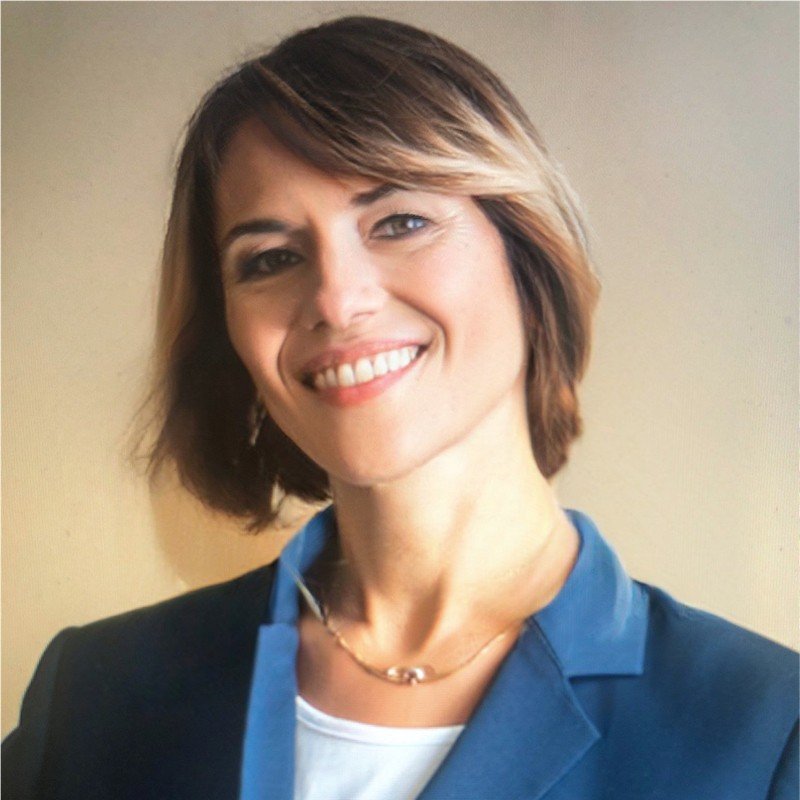

Frontiers Forum Deep Dive series
The human functioning revolution
5 December 2023 | 16:00-17:30 CET
Renowned researchers discussed how the integration of biological and lived experiences of health, could revolutionize health systems and strategies, benefitting research, healthcare and policy.

Speakers
-

Prof Gerold Stucki
University of Lucerne and Swiss Paraplegic Research - Switzerland
Read bio -

Prof Jerome Bickenbach
University of Lucerne and Swiss Paraplegic Research - Switzerland
-

Prof Sara Rubinelli
University of Lucerne and Swiss Paraplegic Research - Switzerland
-

Dr Frederico Guanais
Organization for Economic Cooperation and Development (OECD)
Read bio
-

Prof Walter Frontera
University of Puerto Rico School of Medicine - Puerto Rico
-

Prof Hannah Kuper
London School of Hygiene and Tropical Medicine, UK
-

Prof Birgit Prodinger
University of Augsburg, Germany
-

Aleksandra Posarac
Economist - formerly at the World Bank


What are the next steps in the human functioning revolution?
The presentations and discussion in this Frontiers Forum Deep Dive session, built on the Frontiers in Science article ‘The human functioning revolution: implications for health systems and sciences’.
This new interdisciplinary field provides promise for the integration of diverse research topics and methods to provide a fuller understanding of human health. This could potentially unlock investment and progress towards achieving United Nations Sustainable Development Goal (SDG) 3.
Session program
Rethinking health systems and sciences to bridge health, well-being and societal welfare
Introduction by Prof Sara Rubinelli
Realizing the societal value of health through functioning
Dr Frederico Guanais
Implementing functioning across health systems and sciences
Panel discussion led by Profs Gerold Stucki and Jerome Bickenbach
Audience Q&A
Speaker and contributor bios
-
Gerold Stucki
Professor of Health Sciences and Health Policy
University of Lucerne and Swiss Paraplegic Research, SwitzerlandProf Gerold Stucki first developed an agenda for functioning and rehabilitation research over 20 years ago. In his roles as Professor in the Faculty of Health Sciences and Medicine at the University of Lucerne, Director of Swiss Paraplegic Research, and International Classification of Functioning, Disability and Health (ICF) Research Branch, he has been instrumental in advancing human functioning sciences research.
Gerold has been collaborating with the World Health Organization to implement the ICF globally in the health sector and beyond. He is co-director of the Center for Rehabilitation in Global Health Systems at the University of Lucerne and a Foreign Associate of the National Academy of Medicine (USA).
-
Jerome Bickenbach
Professor at the Faculty of Health Sciences and Medicine
University of Lucerne and Swiss Paraplegic Research, SwitzerlandAs a consultant for the World Health Organization (WHO), Prof Jerome Bickenbach developed the International Classification of Functioning, Disability and Health. He is also currently a consultant for the WHO, World Bank, OECD, and UNICEF on reform of disability assessment in Eastern European countries.
Jerome's most recent research investigates the relationship between disability and health, and between disability and well-being. He is co-group leader of the Disability Policy and Implementation Research unit at Swiss Paraplegic Research, and was previously a human rights lawyer, specializing in anti-discrimination for people with intellectual impairments and mental illness.
-
Sara Rubinelli
Professor of Health Sciences
University of Lucerne, SwitzerandHealth communication expert Prof Sara Rubinelli leads the Person-Centered Healthcare Group at Swiss Paraplegic Research and is Vice-Dean of Health Sciences and Policy at the University of Lucerne. Her research interests include health behavior change, social marketing and health campaigns, and models of health and well-being.
Sara is a scientific advisor to the World Health Organization (WHO) and a former President of the International Association for Communication in Healthcare (EACH), which aims to promote and advance the field of communication in healthcare, and influence policy through dissemination of evidence.
-
Frederico Guanais
Deputy Head of Health Division
OECDAn international expert in strengthening health systems, primary health care, and global health, Dr Frederico Guanais has worked in the field of health policy for more than 20 years. In his current role at the Organization for Economic Co-operation and Development (OECD), he supervises technical work on people-centered healthcare outcomes.
Previously a Principal Health Specialist at the Inter-American Development Bank (IADB), Frederico led research projects on assessing and strengthening primary care. As Chief of Staff to the Minister of Social Development and Fight Against Hunger, Brazil, he advised on social protection policy and intersectoral coordination between health, nutrition, and education policies.
-
Walter Frontera
Professor in the Department of Physical Medicine and Rehabilitation
University of Puerto Rico School of Medicine, San Juan, Puerto RicoProf Walter Frontera’s research focuses on the basic mechanisms underlying skeletal muscle dysfunction in elderly people and patients with chronic disease, and how exercise can be used to slow down and rehabilitate muscle weakness and atrophy. Now based at the University of Puerto Rico’s School of Medicine, Walter was previously Professor and Chair of Physical Medicine and Rehabilitation at Harvard Medical School and Vanderbilt University School of Medicine.
Walter’s pioneering work as a clinician, educator, and researcher in the field of Physical Medicine and Rehabilitation (PM&R) led to him being elected to the US National Academy of Medicine. He has also received numerous awards for his contributions to the field of PM&R, including the Gerontological Society of America’s Excellence in Rehabilitation of Aging Award in 2015.
-
Hannah Kuper
Professor of Epidemiology and Director of the International Centre for Evidence in Disability, Department of Population Health
London School of Hygiene and Tropical Medicine, London, UKAn epidemiologist by training, Prof Hannah Kuper‘s main research interest is disability in low- and middle-income countries, with particular focus on improving the evidence base to support disability inclusive healthcare and development. She co-founded the Missing Billion Initiative, working with governments, donors, and health systems to improve global access to healthcare for people with disabilities.
Hannah also works on projects investigating the social and economic impact of congenital Zika syndrome in Brazil. She is the Director of the International Center for Evidence in Disability at the London School of Hygiene and Tropical Medicine (LSHTM), a research group that works to expand the research and teaching activities of LSHTM in the field of global disability.
-
Birgit Prodinger
Chair and Professor for Inclusive Health Care Faculty of Medicine
University of Augsburg, GermanyProf Birgit Prodinger, is a health scientist with a background in occupational therapy, and extensive experience in studying and teaching functioning. She was recently appointed as Chair and Professor of Inclusive Health Care at the University of Augsburg.
Birgit’s research focuses on describing and understanding the lived experience of people with disability, and in particular, how health systems respond to their needs. She has contributed considerably to the establishment of methods for the standardized reporting of routinely collected functioning data by using the International Classification of Functioning, Disability and Health (ICF) as a reference. -
Aleksandra Posarac
Former Lead Economist
The World BankAn economist who is passionate about engagement in disability inclusion, Aleksandra Posarac has provided high level policy and strategic advice and led projects in more than 20 countries around the world, including on how to apply functioning to disability assessments.
Aleksandra previously worked as Lead Economist and Program Leader for Human Development in the South Caucasus, the Philippines and Southern Africa at the World Bank. She was the World Bank Advisor for Disability and Development and co-executive editor of the World Report on Disability published in 2011 by the World Health Organization and the World Bank. Her areas of specialization include social security, social assistance, and social protection.
